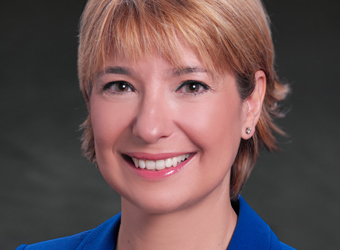Dr. Aysegul Timur was one of three Workforce Education Innovators recently recognized by Florida College Access Network at the 2019 FCAN Summit. This follow-up story highlights Dr. Timur’s work as a community leader helping prepare students for the education and career that is right for them.
As one of the authors of the annual Workforce Now report, Dr. Aysegul Timur seeks to identify current and future talent requirements in Southwest Florida (SWFL) while examining workforce gaps, including skills, knowledge, and characteristics coveted by regional employers.
Some of the most consistent feedback from employers has revolved around a lack of foundational (or “soft”) skills from current workers and prospective employees, such as dressing properly and answering calls professionally.
“We’ve always felt that foundational skills were one of the important factors,” Timur said of her time spent with various FutureMakers Coalition workgroups focused on workforce development since 2016. “We realized we needed some sort of formal program and education where individuals could learn and earn a credential.”
The result is the Professional Effectiveness Certificate (PEC) program, which was piloted in fall 2018 and is designed to improve an individual’s marketable skills and workforce competencies.
The PEC program’s genesis dates back to the formation of the FutureMakers Coalition, which works to transform SWFL’s workforce through collective leadership along the cradle-to-career pathway.
“The idea of addressing soft skills in our area was six or seven years old, with many people trying to figure it out, and she (Dr. Timur) did it,” said Tessa LeSage, director of social innovation and sustainability for the Southwest Florida Community Foundation. The foundation serves as the backbone organization for FutureMakers. “It’s been an ongoing process very much in the style of collective impact, and it’s still a challenge.”
The PEC program is a collaboration between Hodges University and members of the FutureMakers Coalition. Timur currently serves as assistant vice president of strategic initiatives, strategy, and program innovation for Florida Gulf Coast University, and previously occupied various positions at Hodges, including dean of the university’s business school.
The feedback from employers as she and her partners set out to develop the PEC program curriculum was nevertheless eye-opening.
“No one had to tell me to give people a firm handshake or look them in the eye, so when employers told me these were major gaps for individuals coming into entry-level positions, I was a little skeptical,” she said. “But I realized with so many digital natives who have new ways of learning, we probably weren’t doing a good enough job of reminding youngsters how important these foundational skills are.”
Based on the research, the PEC curriculum settled on five modules: Introduction to Computers, Effective Business Communication, Improving Your Personal Productivity, Developing a Successful Mindset, and Fundamentals of Business.
Students who enroll in the non-credit-bearing program — which is fully customizable based on the needs of the employer or individual pursuing the certificate — complete the five courses and can earn up to nine digital badges while mastering more than 40 competencies.
“We had employers write some of the modules because one of the parts of this project is specific to their needs,” Timur said.
The program was piloted in fall 2018 by a diverse group of students at different ages and backgrounds — online and face-to-face — in a collaboration between the higher ed institutions, CareerSource Southwest Florida, the Immokalee Foundation, and employers such as Chico’s FAS and Arthrex, Inc.
As the program continues to scale, Timur is excited about the project’s potential to help SWFL job-seekers thrive in the careers they are pursuing.
“The response has been overwhelmingly positive,” Timur said of the program’s pilot phase. She enjoyed collaborating with regional partners to create a program that serves as wide a cross-section of the region as possible. “This is a true, community-wide initiative.”
LeSage praised Timur’s leadership in their region and the way she represents FutureMakers throughout the state.
“She’s completely embraced the idea of being a FutureMaker, and she introduces herself as a FutureMaker everywhere she goes,” LeSage said. “Her open-mindedness and willingness to collaborate toward a shared goal is pretty astounding.
“Dr. Timur is the essence of what it means to be a FutureMaker.”
RELATED ARTICLES:
Good Work! FCAN announces Workforce Education Innovator Award winners
FutureMakers Coalition releases 2018 Outcomes Report

